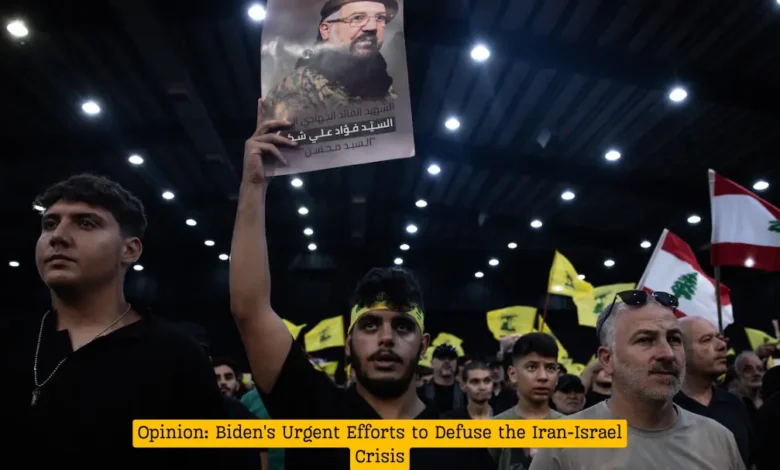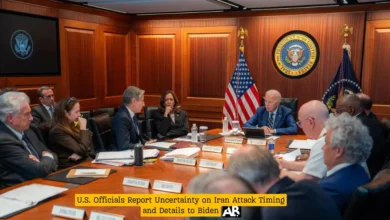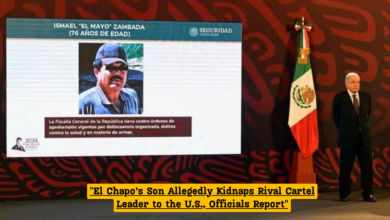News
Trending
Opinion: Biden’s Urgent Efforts to Defuse the Iran-Israel Crisis
As tensions between Iran and Israel reach a critical point, President Joe Biden is making urgent efforts to defuse the situation and prevent a potential conflict. The stakes are high, with significant implications for regional stability and global security. This article explores the complexities of Biden's diplomatic strategies, the challenges he faces, and the potential outcomes of his efforts.

The Growing Crisis
The longstanding rivalry between Iran and Israel has been marked by hostility and conflict. Recent developments have exacerbated the situation, with Iran’s nuclear ambitions and Israel’s security concerns at the forefront.
Key Factors Driving the Crisis
- Iran’s Nuclear Program: Iran’s ongoing pursuit of nuclear capabilities has alarmed Israel and the international community. Despite international agreements and sanctions, Iran continues to advance its nuclear technology, raising fears of a nuclear-armed Iran.
- Israel’s Security Measures: Israel views a nuclear-armed Iran as an existential threat and has taken aggressive measures to prevent it. This includes covert operations, cyberattacks, and military preparedness, further escalating tensions.
- Regional Alliances: The Middle East’s intricate web of alliances adds another layer of complexity. Iran’s ties with groups like Hezbollah and Hamas pose direct threats to Israel, while Israel’s relationships with countries like Saudi Arabia and the UAE influence the regional dynamics.
Biden’s Diplomatic Efforts
President Biden’s approach to defusing the crisis involves a mix of diplomacy and deterrence. Here are the key strategies he is employing:
- Reviving Diplomacy: Biden is working to revive the Joint Comprehensive Plan of Action (JCPOA), also known as the Iran nuclear deal. By re-entering this agreement, the administration hopes to curb Iran’s nuclear ambitions through diplomatic means.
- Strengthening Alliances: The U.S. is bolstering its alliances with Israel and other regional partners. This includes intelligence sharing, joint military exercises, and providing advanced defense systems to enhance their security.
- Balancing Pressure and Incentives: The administration is using a combination of sanctions and incentives to influence Iran’s behavior. This dual approach aims to pressure Iran into compliance while offering economic relief if they adhere to international agreements.
Challenges and Obstacles
Biden’s efforts are fraught with challenges:
- Domestic Politics: Within the U.S., there is significant opposition to re-entering the JCPOA. Critics argue that the deal is flawed and that it does not adequately address Iran’s missile program and regional activities.
- Iran’s Stance: Iran’s government remains defiant, insisting on the lifting of all sanctions before any negotiations. This hardline stance complicates diplomatic efforts and prolongs the crisis.
- Israel’s Security Concerns: Israel remains skeptical of any diplomatic agreements with Iran. Prime Minister Netanyahu has repeatedly stated that Israel will take whatever measures necessary to prevent Iran from obtaining nuclear weapons.
Potential Outcomes
The success of Biden’s diplomatic efforts remains uncertain. Several scenarios could unfold:
- Diplomatic Resolution: If successful, Biden’s diplomatic efforts could lead to a renewed JCPOA, de-escalating tensions and providing a framework for monitoring Iran’s nuclear activities.
- Military Confrontation: Should diplomacy fail, the risk of military confrontation remains high. An Israeli preemptive strike on Iranian nuclear facilities could trigger a broader conflict, drawing in other regional players and possibly the U.S.
- Prolonged Stalemate: It’s also possible that the crisis remains in a prolonged stalemate, with ongoing low-intensity conflicts and a continuous cycle of provocations and retaliations.





